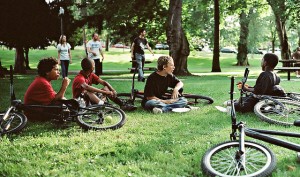10 tips for building strong, resilient kids

Our kids will bounce back from lots of the challenges they face, but here are some simple ways in which we can support them to grow strong and more confident everyday:
1. Tell them we love them! We can do this in words as well as actions: hugs, playing games, enjoying their company, appreciating their contribution.
2. When they do something we’re proud of, tell them.
3. Give them the chance to help solve problems. When you have a problem in your family, ask them ’What do you think we can do about that?’ and encourage their ideas.
4. Encourage kids to ask for help and make it OK when they do. If they see us seeking help, they’ll know it’s OK. After all, kids learn most by what we DO, not what we SAY.
5. Allow kids to express their feelings, especially when they are angry or sad or hurt. It’s easy when they’re happy, but when they are upset it can push our buttons. Simply telling them you know they’re hurt or sad can help. Telling them to stop crying usually doesn’t!
6. Kids who can recognise feelings, their own and other people’s, will be stronger and able to relate to others better. Tell them when we are feeling tired, sad, or upset and why. Ask them how they are feeling to help them identify their own feelings. This is a great life skill to develop with our kids. It is especially important when children are distressed for them to know we are concerned and want to help and support them.
7. Encouraging our kids to build good social relationships with others (inside and outside the family) helps them connect to others and builds their resilience. Sporting groups, clubs and community activities can help our kids develop links outside the home.
8. Strong bonds within our family protect our children when things get tough. Routines such as having meals together as much as possible, doing fun things together and sharing holidays all help children feel secure and safe.
9. Get involved with your child’s school: meet the teacher, go to assemblies or sports events, volunteer to help in the classroom when you can. Your younger children will love your involvement. They’ll tell you when it’s no longer cool.
10. Enjoy! Kids can sometimes be hard work, tiring and frustrating, but their childhood sets them up for a good life. So enjoy them and they will be stronger and healthier.
If you’re worried about your child, seek help from someone their teacher or your GP or visit websites like:
There are also helplines you can call:
Kids Helpline – 1800 55 1800
Lifeline – 13 11 14
